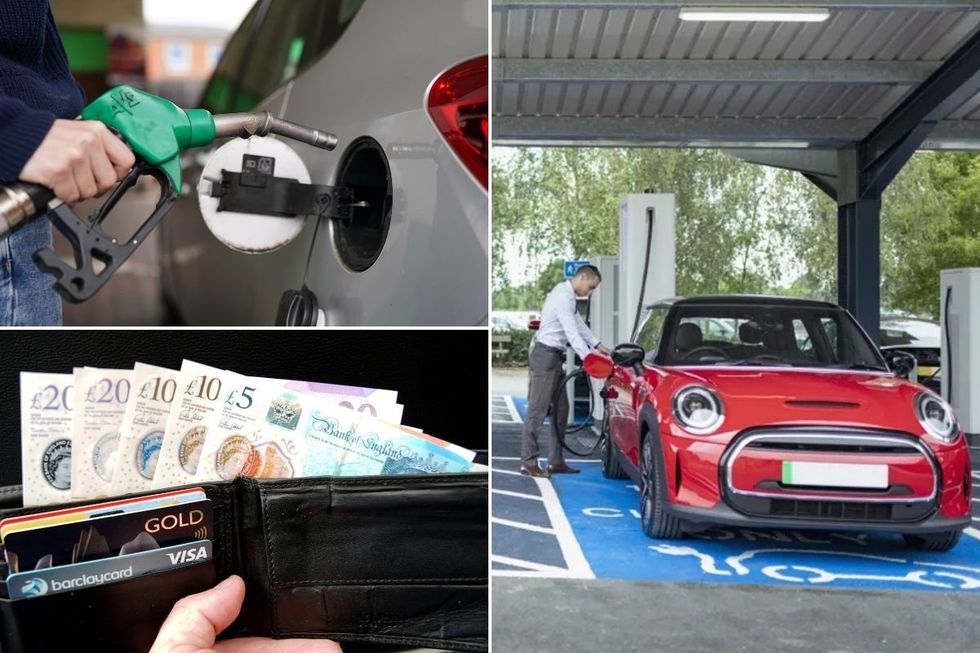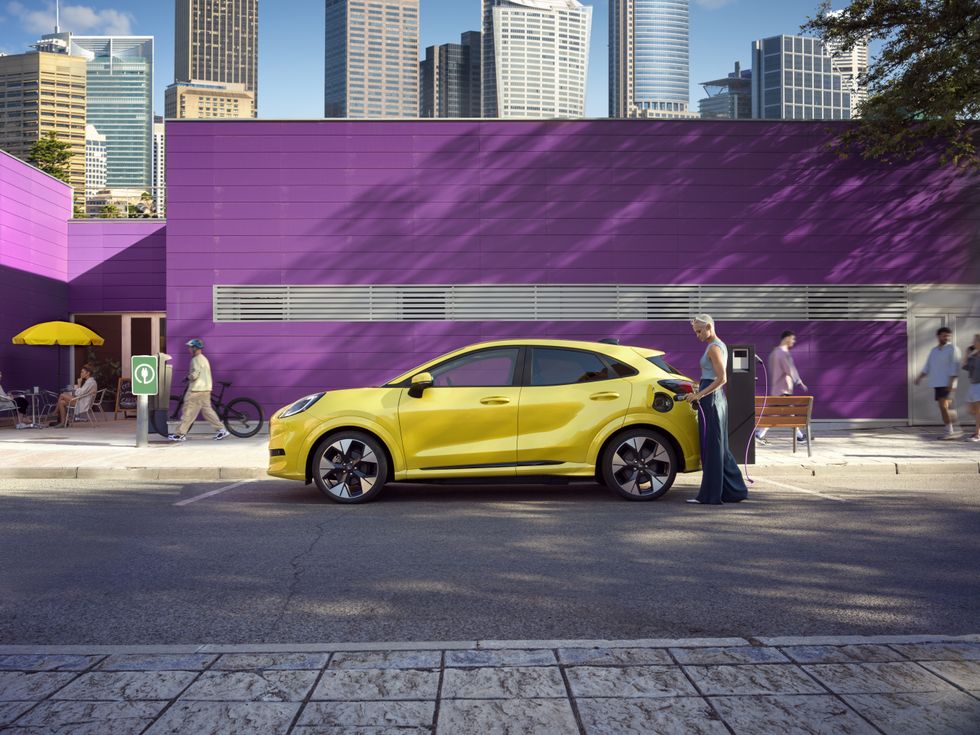Electric cars are £369 cheaper to run than petrol vehicles despite Rachel Reeves' tax raid

WATCH: Eamonn Holmes weighs in on electric cars as he declares 'nothing about them is attractive'
|GB NEWS

The Electric Car Grant can help drivers slash £3,750 off the list price of a new EV
Don't Miss
Most Read
New research has found that electric vehicles are hundreds of pounds cheaper to run than petrol cars as more drivers switch to zero emission vehicles.
Fresh data has found that it costs around £1,351 to run an electric car for a year, compared to £1,720 for a petrol vehicle.
This £369 annual saving takes into account the price of insurance, fuel or electric charging, Vehicle Excise Duty, MOT costs and other charges, including Clean Air Zones.
This is despite the cost of running an electric vehicle increasing over the last year, since EVs now have to pay the minimum standard rate for VED car tax.
TRENDING
Stories
Videos
Your Say
While it was announced under the Conservative Government in 2022, Chancellor Rachel Reeves confirmed that electric car owners would be liable to pay Vehicle Excise Duty from April 1, 2025.
While they only pay the minimum standard rate of car tax, namely £195, they are also more likely to face the Expensive Car Supplement.
This "luxury car tax" is a £425 annual charge for vehicles that cost more than £40,000, which drivers need to pay for five years after their first year of registration.
Higher energy costs have also raised the running price of an electric vehicle compared to last year, with drivers now paying £441, rather than £400.

New data shows that drivers could save hundreds of pounds a year with an electric car, compared to a petrol vehicle
|PA/GETTY
Despite this, EVs pay just under half as much as the average driver does on fuel, with petrol and diesel prices remaining relatively stagnant over the last year.
Sam Wilson, expert at Compare the Market, said: "EV drivers will be pleased to know that EVs remain more affordable to run than petrol cars on average."
He acknowledged how the Government's new £650million Electric Car Grant has helped motorists save either £1,500 or £3,750 off the price of a new electric vehicle under the price of £37,000.
The scheme has been backed by experts for helping drivers save money on the price of a new electric car, as well as helping EVs reach price parity with petrol or diesel equivalent models.
LATEST DEVELOPMENTS:
The Ford Puma Gen-E is one of two vehicles to benefit from the larger £3,750 grant, making it hundreds of pounds cheaper than the UK's best-selling car of 2024, the Ford Puma.
Compare the Market highlighted how insurance premiums for the Citroen e-C3, e-C4, e-C5 and e-Berlingo, which are all included in the ECG scheme, were just £451 on average.
This major saving is more than £200 cheaper than the average motor insurance price for electric cars and £175 cheaper than the average cost of a petrol vehicle.
Data shows that this low insurance price could help motorists spend just £1,142 over the course of a year to run their electric vehicles.
 The Ford Puma Gen-E is one of two Ford models eligible for the £3,750 Electric Car Grant incentive | FORD
The Ford Puma Gen-E is one of two Ford models eligible for the £3,750 Electric Car Grant incentive | FORDMr Wilson added: "Alongside lower upfront costs, motorists driving certain EV models included in the Government's new ECG scheme could also benefit from the lower insurance premiums typically associated with EVs, further reducing annual running costs.
"As average insurance premiums fall for EVs more broadly, comparing policies online ahead of renewal could be one of the easiest ways for motorists to make savings."
Electric vehicles have seen a massive boost in growth in recent months, with data from the Society of Motor Manufacturers and Traders (SMMT) showing that 72,779 new electric vehicles were sold in September.
This is a staggering 29.1 per cent year-on-year growth, compared to a 2.4 per cent rise for petrol vehicles, with the petrol market share now falling below 46 per cent.










